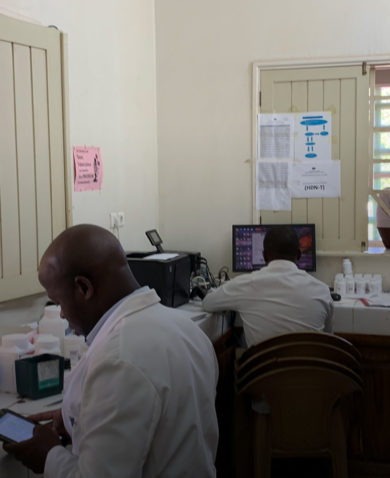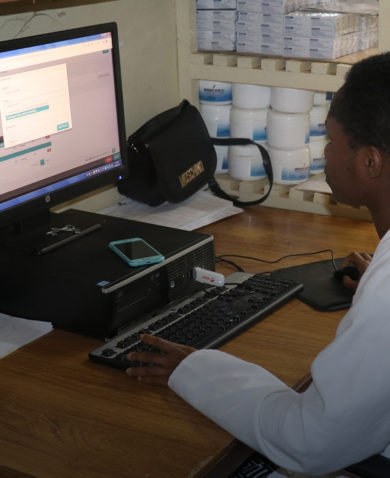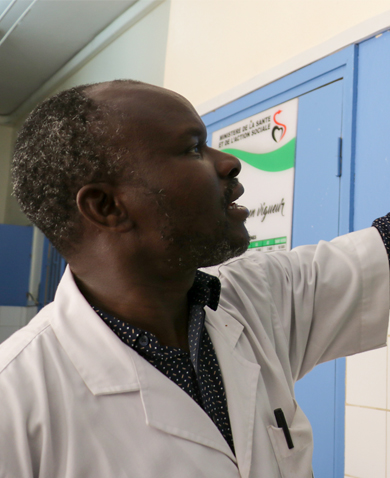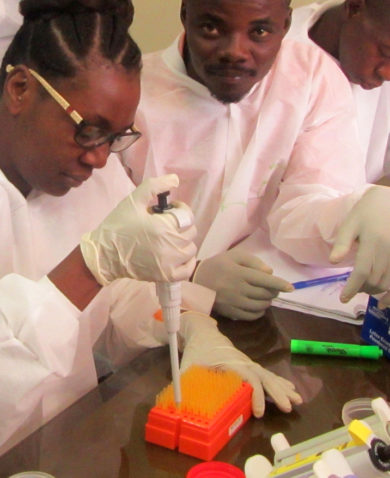Recommendations for the second half of the project — which is expected to continue through November 2023 — include continued development of the project’s global supply chain strategy, better organization and tracking of global collaboration elements, and a further build out of GHSC-PSM’s automated systems to enhance in-country progress towards improving supply chains. The project continues to work closely with USAID to undertake initiatives and find innovative ways to strengthen supply chain systems and ensure a consistent, reliable supply of life-saving commodities around the world.

Chemonics News
News: Mid-term Review of GHSC-PSM Project Notes Significant Progress
May 12, 2020 | 2 Minute ReadUSAID’s Mid-term Review of its Global Health Supply Chain Program-Procurement and Supply Management (GHSC-PSM) project reaffirmed the project’s progress toward strengthening supply chains and success in providing much-needed access to essential medicines since 2016.
An independent, mid-point review of the GHSC-PSM project, implemented by a Chemonics-led consortium, recently released its findings and recommendations in this report. The review looked at GHSC-PSM’s global and in-country work in HIV, malaria, family planning and reproductive health (FP/RH), and maternal, newborn, and child health (MNCH) and assessed the project’s achievement of expected results while identifying opportunities for performance improvement.
GHSC-PSM is the primary vehicle through which the U.S. Agency for International Development (USAID) procures and provides health commodities for countries receiving U.S. government foreign assistance. The project also provides technical assistance to improve the efficiency, reach, and sustainability of in-country supply chains and is supported with funding from the U.S. President’s Emergency Plan for AIDS Relief (PEPFAR), the U.S. President’s Malaria Initiative (PMI), USAID’s family planning and reproductive health (FP/RH) program, and USAID’s maternal and child health (MCH) program.
The review team assessed progress made and identified opportunities for further improvement on three core objectives: 1) improved availability of commodities, 2) strengthened in-country supply chain systems, and 3) effective global collaboration for better management of commodity procurement. The review also assessed the project’s cost savings and efficiencies as compared to predecessor supply chain projects. The findings concluded that despite some challenges at the beginning, GHSC-PSM met difficult targets for on-time delivery and on-time in-full delivery and adapted well to a difficult startup. “It should be noted that in the private sector, GHSC-PSM would be considered a highly rapid start-up, requiring learning ‘on the fly’ and a highly adaptive business process culture,” acknowledged the reviewers in their report.
The reviewers also noted that GHSC-PSM “demonstrated declines in total landed cost over the first years of the project that were greater than the savings developed under previous projects” and that operational and organizational efficiency has resulted in significant cost savings that can be reinvested in commodity and technical assistance budgets. The report highlights the project’s strengths in procurement, distribution, and the technical assistance to in-country systems, and noted the progress made to date in key global engagements, especially in FP/RH and MNCH, market research, and innovations.
















